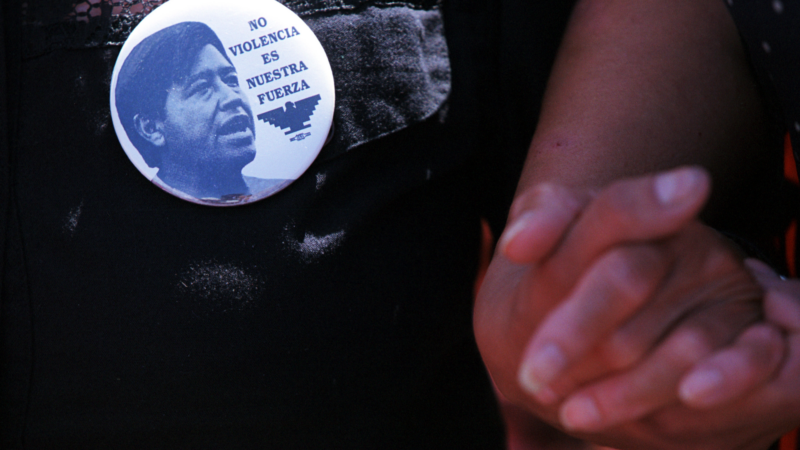Cesar Chavez Day celebrates a lifetime fight for justice for farmworkers
The last day of March commemorates labor activist and civil rights icon Cesar Chavez, whose fight to better the lives of the nation’s farmworkers helped improve the inhumane working conditions of the vital, but often overlooked industry.
President Barack Obama proclaimed the day a holiday in 2014, and it is observed in a handful of states, including California, where Chavez first began his mission to challenge the way farmhands were treated.
Chavez was born on March 31, 1927, in Yuma, Ariz., to Mexican-born farmers. When he was a child, his family lost their farm during the Great Depression, leading Chavez into what would become his longtime career of migrant field labor.
Noticing the brutal conditions of the industry, where families like his own were expected to work grueling hours in the hot sun for mere pennies, forcing them into living conditions that would be considered largely inhumane, Chavez began studying the work of nonviolent activists like the Rev. Martin Luther King Jr. and Mahatma Gandhi.
After leaving the Navy in 1946, Chavez eventually adopted La Causa — the cause — to unionize the largely immigrant workforce and push for fair wages and better conditions.
In 1962, Chavez left the comfort of a salaried position at the Community Service Organization and moved his family to Delano, Calif., where he, alongside his wife and their eight young children, launched the National Farm Workers Association.
Lacking a paycheck but dedicated to unionizing the farm labor force, in 1965, Chavez traveled across California’s Imperial and San Joaquin valleys to recruit new members for the movement that would eventually become the United Farm Workers union. During this recruitment period, Chavez relied on donations to get by.
Though he would voluntarily remain poor all his life, Chavez found success in uniting field workers, heading up nonviolent movements like boycotting the table grape market, his famous 340-mile march from Delano to Sacramento, and a 25-day fast in 1968 that left him too weak to even read a speech he had prepared.
The speech, read on his behalf, said in part: “It is my deepest belief that only by giving our lives do we find life. I am convinced that the truest act of courage, the strongest act of manliness, is to sacrifice ourselves for others in a totally non-violent struggle for justice. To be a man is to suffer for others. God help us be men.”
While Chavez faced threats of violence from police and cruelty from farm owners, as well as being spied on for years by the FBI under suspicions of being an extremist, his legacy has been embraced in popular culture.
In 1994, the year after Chavez’s death, he was posthumously awarded by President Bill Clinton the Medal of Freedom.
Guides to help you tackle your New Year’s resolutions
From building your strength to tackling credit card debt, NPR's Life Kit has a newsletter journey to help you tackle your New Year's resolution.
Guides to help you tackle your New Year’s resolutions
From building your strength to tackling credit card debt, NPR's Life Kit has a newsletter journey to help you tackle your New Year's resolution.
Dozens presumed dead in fire at Swiss Alps bar during New Year’s celebration
Dozens of people are presumed dead and about 100 injured, most of them seriously, following a fire at a Swiss Alps bar during a New Year's celebration, police said Thursday.
Warren Buffett officially retires as Berkshire Hathway’s CEO
The legendary 95-year-old investor spent decades building his company into one of the world's largest and most powerful. Now Greg Abel is taking it over.
Crypto soared in 2025 — and then crashed. Now what?
For most of 2025, cryptocurrencies such as bitcoin surged as President Trump vowed to make the U.S. a crypto leader. But now, a severe sell-off has shaken the sector.
Zohran Mamdani sworn in as New York City mayor, capping historic rise
Mayor Zohran Mamdani took the oath of office in New York City after midnight Thursday. The city's first Muslim mayor, a member of the Democratic Socialists of America, has promised to focus on affordability and fairness.






